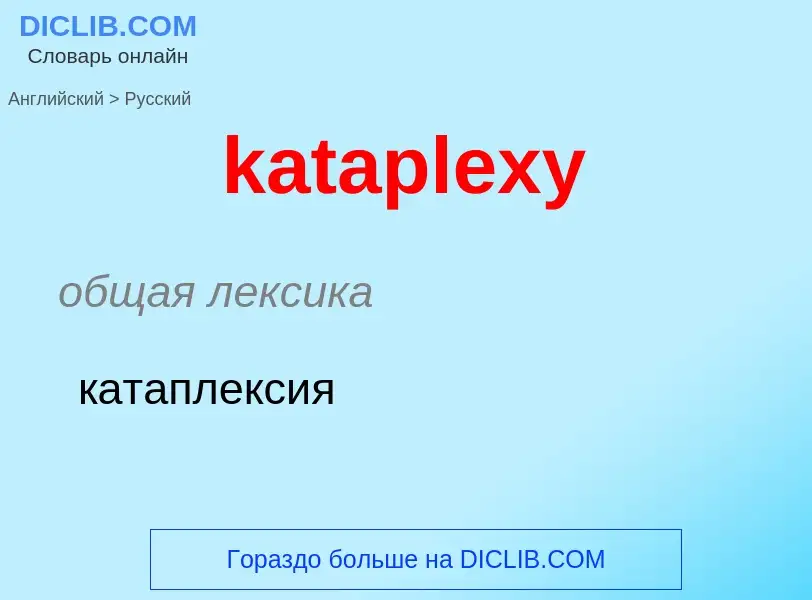Traduzione e analisi delle parole tramite l'intelligenza artificiale ChatGPT
In questa pagina puoi ottenere un'analisi dettagliata di una parola o frase, prodotta utilizzando la migliore tecnologia di intelligenza artificiale fino ad oggi:
- come viene usata la parola
- frequenza di utilizzo
- è usato più spesso nel discorso orale o scritto
- opzioni di traduzione delle parole
- esempi di utilizzo (varie frasi con traduzione)
- etimologia
kataplexy - traduzione in russo
общая лексика
катаплексия
['kætəpleksi]
медицина
блокада тонуса
катаплексия
неврология
синдром Левенфельда-Геннеберга
существительное
медицина
катаплексия
Definizione
Wikipedia
Cataplexy is a sudden and transient episode of muscle weakness accompanied by full conscious awareness, typically triggered by emotions such as laughing, crying, or terror. Cataplexy affects approximately 70% of people who have narcolepsy, and is caused by an autoimmune destruction of hypothalamic neurons that produce the neuropeptide hypocretin (also called orexin), which regulates arousal and has a role in stabilization of the transition between wake and sleep states. Cataplexy without narcolepsy is rare and the cause is unknown.
The term cataplexy originates from the Greek κατά (kata, meaning "down"), and πλῆξις (plēxis, meaning "strike") and it was first used around 1880 in German physiology literature to describe the phenomenon of tonic immobility also known as "playing possum" (in reference to the opossum's behavior of feigning death when threatened). In the same year the French neuropsychiatrist Jean-Baptiste Gélineau coined the term 'narcolepsy' and published some clinical reports that contain details about two patients who have similar condition as the narcoleptic cases nowadays. Nevertheless, the onset reported by him was in adulthood as compared to the nowadays cases reported in childhood and adolescence. Even if he preferred the term 'astasia' instead of 'cataplexy' the case described by him remained iconic for the full narcoleptic syndrome.

![In this simplified brain circuit, damage to [[orexin]]-secreting neurons in the hypothalamus can lead to inhibition of [[motor neurons]], thus lowering muscle tone. In this simplified brain circuit, damage to [[orexin]]-secreting neurons in the hypothalamus can lead to inhibition of [[motor neurons]], thus lowering muscle tone.](https://commons.wikimedia.org/wiki/Special:FilePath/Simplified brain motor circuit.jpg?width=200)
